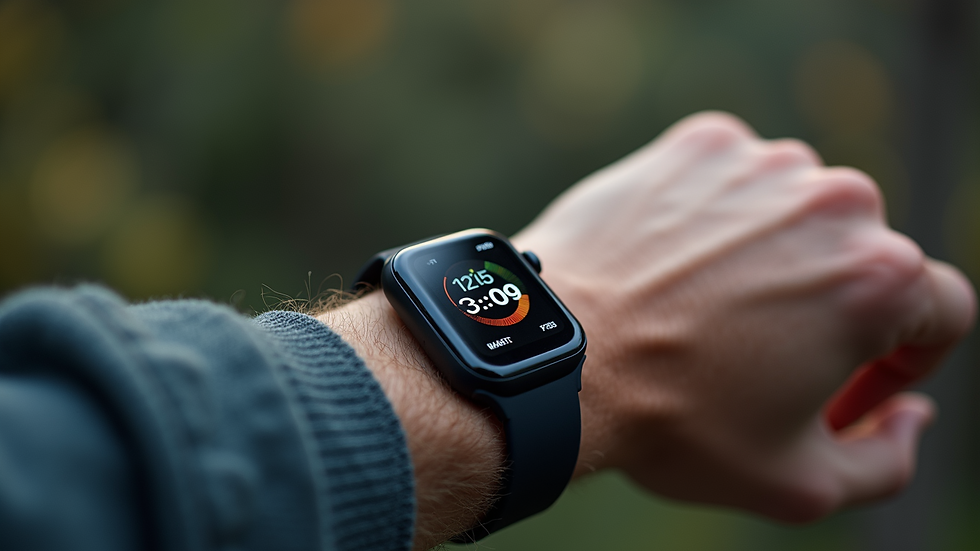The Role of Technology in Transforming Patient Care
- Ling Zhang
- Jun 26
- 5 min read
From Telehealth to AI: The Role of Technology in Transforming Patient Care
In recent years, technology has profoundly transformed various industries, and healthcare is no exception. The integration of advanced technologies in healthcare has revolutionized the way medical professionals provide care and has significantly improved patient outcomes. From telemedicine to artificial intelligence, these innovations are changing the landscape of patient care, enhancing efficiency, and facilitating better communication between healthcare providers and patients.
Understanding Healthcare Technology
Healthcare technology encompasses a wide range of tools, applications, and systems designed to improve patient care and streamline medical processes. These technologies can be classified into several categories including diagnostic tools, therapeutic devices, health IT, telehealth solutions, and wearable devices. Each of these elements contributes to a more efficient, accurate, and accessible healthcare system.
For instance, electronic health records (EHR) allow for seamless sharing of patient information among providers, which enhances collaborative patient care. According to the Office of the National Coordinator for Health Information Technology, nearly 86% of office-based physicians reported using EHR systems in 2021, which illustrates the widespread adoption of healthcare technology.

The Rise of Telemedicine
Telemedicine has emerged as one of the most significant advancements in healthcare technology. It enables healthcare providers to consult with patients remotely, breaking geographical barriers and increasing access to medical services. During the COVID-19 pandemic, telemedicine usage surged, with a study revealing that telehealth visits increased by 154% compared to the previous year.
Telemedicine enhances patient care by decreasing wait times and providing immediate access to healthcare professionals. It is particularly useful for patients in rural areas who may not have easy access to specialized care. Additionally, telemedicine allows for continuous monitoring of chronic conditions through remote patient monitoring tools, leading to better health outcomes.

Impact of Artificial Intelligence in Healthcare
Artificial intelligence (AI) has started to play a significant role in transforming patient care as well. AI algorithms can analyze vast amounts of data, from medical records to genetic information, to aid doctors in making informed decisions. For example, AI is used in diagnostic imaging to help radiologists identify abnormalities in X-rays and MRIs more accurately and quickly.
A study conducted by Stanford University found that an AI system could identify skin cancer with an accuracy rate comparable to professional dermatologists. This technology not only enhances diagnostic capabilities but also saves time for healthcare providers, allowing them to focus on patient interaction and care.
Integrating AI with healthcare processes has the potential to predict patient deterioration and suggest preventive measures. This capability is especially crucial for critical care units, where patients require constant monitoring and immediate medical intervention.
Wearable Technology and Patient Engagement
Wearable technology, such as fitness trackers and smartwatches, has gained popularity among consumers and has started to positively impact patient care. These devices empower patients to take control of their health by continuously monitoring vital signs like heart rate, activity levels, and sleep patterns.
Patients can share data from wearables with their healthcare providers, fostering a collaborative approach to health management. Additionally, wearables can remind patients to take medications, complete tasks, or attend appointments, increasing compliance and engagement. According to a report by ResearchAndMarkets, the global market size for wearable medical devices is expected to reach $27 billion by 2026, reflecting strong consumer demand for health-related technology.

Data Security and Ethical Considerations
With the growing reliance on technology in healthcare, it is crucial to address data security and ethical implications. The collection and exchange of sensitive health information through digital platforms pose risks related to privacy breaches and unauthorized access. Healthcare organizations must implement robust cybersecurity measures to protect patient data from cyber threats.
Additionally, ethical considerations must be factored into the use of AI and data analytics in healthcare. Ensuring unbiased algorithms and equitable access to technology remains a priority. Healthcare professionals must continuously evaluate the ethical implications of using patient data for research and predictive analytics to maintain trust with patients and the community.
Future of Healthcare Technology
As technology continues to develop, the future of patient care looks promising. Innovations in virtual reality, blockchain, and personalized medicine are expected to further enhance patient experience and care quality. Virtual reality can be used for training healthcare professionals and for therapeutic purposes, such as pain management or anxiety reduction during medical procedures.
Moreover, blockchain technology has the potential to secure patient records while promoting interoperability between different healthcare systems. It could revolutionize how patient data is managed, ensuring accuracy and security.
In conclusion, technology is revolutionizing patient care through healthcare technology. Innovations such as telemedicine, wearable devices, and AI are changing the way we approach healthcare, making it more efficient and accessible. However, as we embrace these advancements, it is essential to address data security and ethical considerations to ensure that we fully harness the potential of technology without compromising patient trust.
The integration of technology in healthcare is not just a trend; it is a fundamental shift towards a more collaborative, efficient, and patient-centric approach to medical care. As we continue to innovate, we can expect a future where technology plays an even larger role in improving health outcomes around the world. For more insights on the impact of technology in health, you can check further here.
tay tuned for the next blog, and subscribe to the blog and our newsletter to receive the latest insights directly in your inbox. Together, let’s make 2025 a year of innovation and success for your organization.
>> Discover the path to achieve sustainable growth with AI and navigate the challenges with confidence through our Data Science & AI Leadership Accelerator program. Tailored to help you craft a compelling data and AI vision and optimize your strategy, it's your key to success in the journey of Generative AI. Reach out for a complimentary orientation on the program and embark on a transformative path to excellence.

May you grow to your fullest in your data science & AI!
Subscribe to our data science & AI Leadership insight blog to stay updated on the latest trends and insights! Don't miss out on valuable information that can help propel your business forward.
Subscribe Grow to Your Fullest and get your Free Download
*** Please DOWLOAD the FREE document, Find your signature vision questionnaires so you use it to help you find your life vision and mission.



Comments